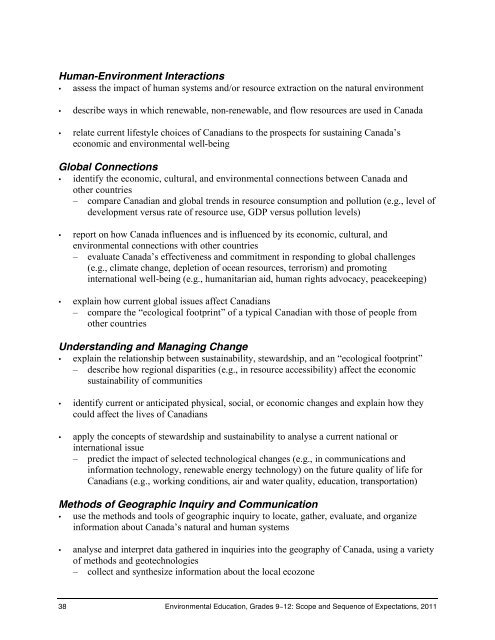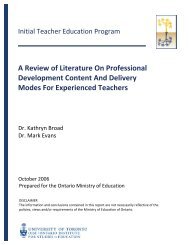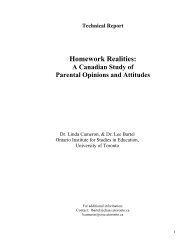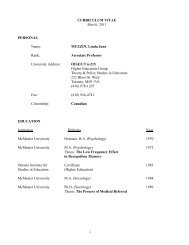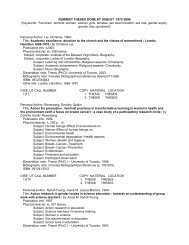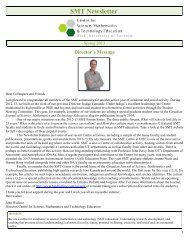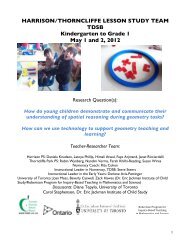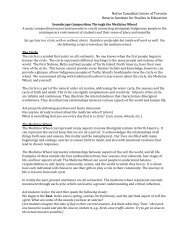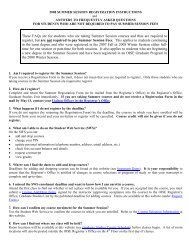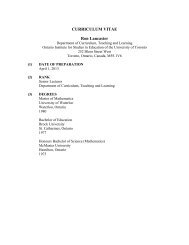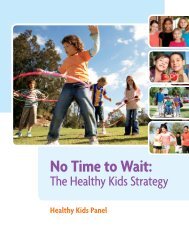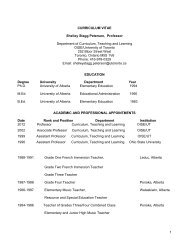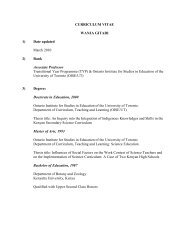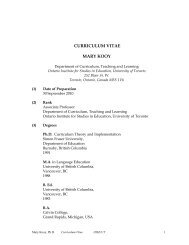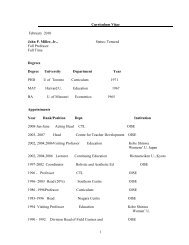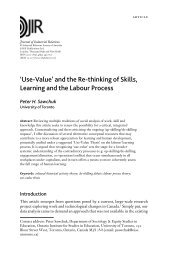The Ontario Curriculum, Grades 9-12 - Ministère de l'éducation ...
The Ontario Curriculum, Grades 9-12 - Ministère de l'éducation ...
The Ontario Curriculum, Grades 9-12 - Ministère de l'éducation ...
You also want an ePaper? Increase the reach of your titles
YUMPU automatically turns print PDFs into web optimized ePapers that Google loves.
Human-Environment Interactions<br />
• assess the impact of human systems and/or resource extraction on the natural environment<br />
• <strong>de</strong>scribe ways in which renewable, non-renewable, and flow resources are used in Canada<br />
• relate current lifestyle choices of Canadians to the prospects for sustaining Canada’s<br />
economic and environmental well-being<br />
Global Connections<br />
• i<strong>de</strong>ntify the economic, cultural, and environmental connections between Canada and<br />
other countries<br />
– compare Canadian and global trends in resource consumption and pollution (e.g., level of<br />
<strong>de</strong>velopment versus rate of resource use, GDP versus pollution levels)<br />
• report on how Canada influences and is influenced by its economic, cultural, and<br />
environmental connections with other countries<br />
– evaluate Canada’s effectiveness and commitment in responding to global challenges<br />
(e.g., climate change, <strong>de</strong>pletion of ocean resources, terrorism) and promoting<br />
international well-being (e.g., humanitarian aid, human rights advocacy, peacekeeping)<br />
• explain how current global issues affect Canadians<br />
– compare the “ecological footprint” of a typical Canadian with those of people from<br />
other countries<br />
Un<strong>de</strong>rstanding and Managing Change<br />
• explain the relationship between sustainability, stewardship, and an “ecological footprint”<br />
– <strong>de</strong>scribe how regional disparities (e.g., in resource accessibility) affect the economic<br />
sustainability of communities<br />
• i<strong>de</strong>ntify current or anticipated physical, social, or economic changes and explain how they<br />
could affect the lives of Canadians<br />
• apply the concepts of stewardship and sustainability to analyse a current national or<br />
international issue<br />
– predict the impact of selected technological changes (e.g., in communications and<br />
information technology, renewable energy technology) on the future quality of life for<br />
Canadians (e.g., working conditions, air and water quality, education, transportation)<br />
Methods of Geographic Inquiry and Communication<br />
• use the methods and tools of geographic inquiry to locate, gather, evaluate, and organize<br />
information about Canada’s natural and human systems<br />
• analyse and interpret data gathered in inquiries into the geography of Canada, using a variety<br />
of methods and geotechnologies<br />
– collect and synthesize information about the local ecozone<br />
38 Environmental Education, <strong>Gra<strong>de</strong>s</strong> 9−<strong>12</strong>: Scope and Sequence of Expectations, 2011


